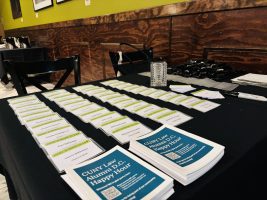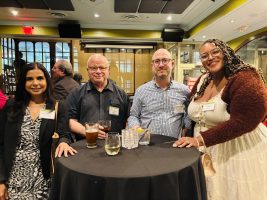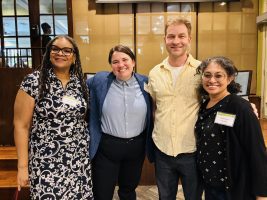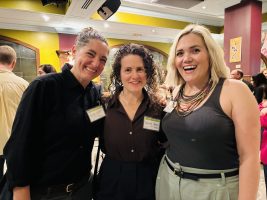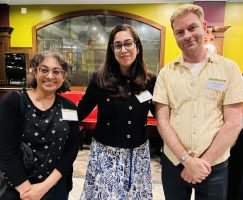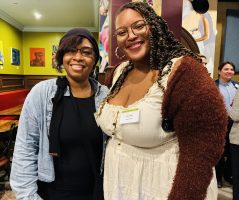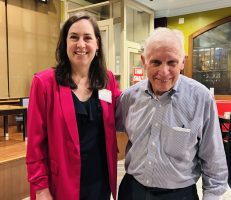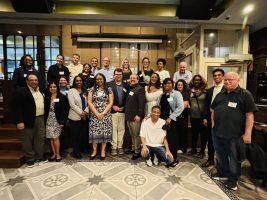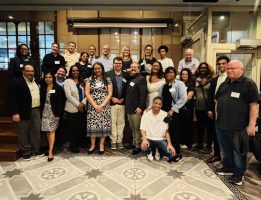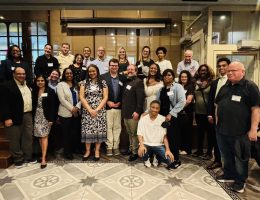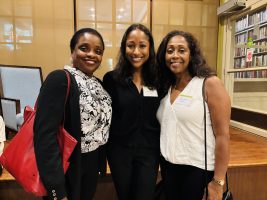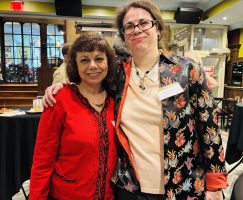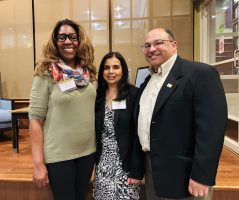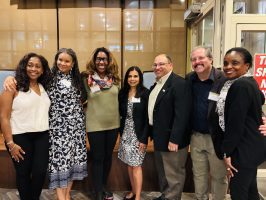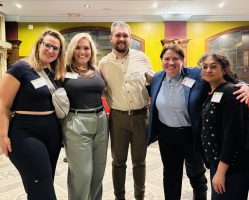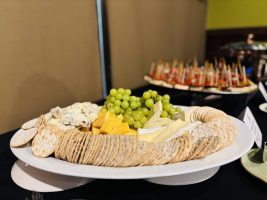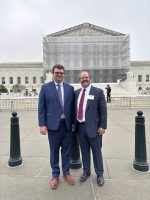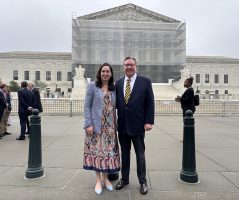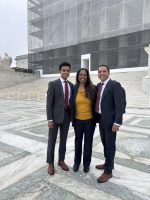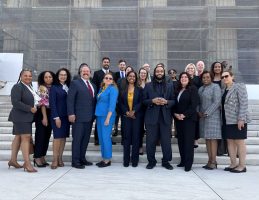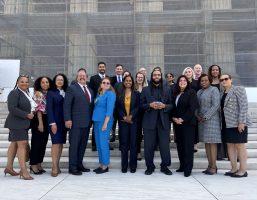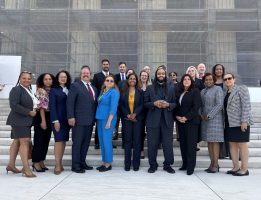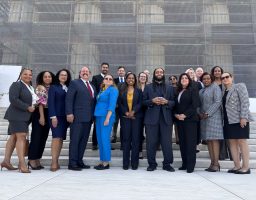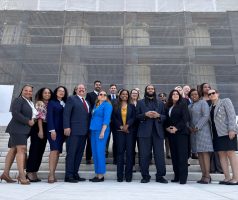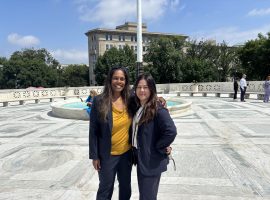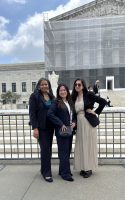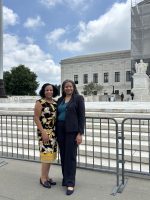34 alumni admitted to the U.S. Supreme Court Bar reflect on lived experience, public interest lawyering, and what it means to claim space in the nation’s highest court.
CUNY Alumni fight for justice every day in courts across the country, and as of June 18th, 34 more alums will be able to elevate that fight to the highest court in the country. Our community is proud to celebrate the alums who were recently admitted to the U.S. Supreme Court Bar. The group of distinguished alums traveled to Washington D.C. as part of an initiative organized by outgoing Dean Sudha Setty, CUNY’s Law’s Office of Alumni Relations, and Professor Franklin Siegel, Distinguished Lecturer at CUNY Law. The 34 alums took their oath before the Justices of the U.S. Supreme Court during a non-argument session. This is the sixth time CUNY Law has sponsored such an event for alums, with the first admission event being sponsored by Dean Kristin Booth Glen in 1997.
For the CUNY Law community, this is a prestigious honor as well as a practical and purposeful strategy to advance movement lawyering by increasing the number of public interest lawyers who can now shape national jurisprudence in the service of people, not power. Arguing cases before the U.S. Supreme Court signifies the pinnacle of professional recognition and, with this latest group of CUNY Law alumni admitted to the U.S. Supreme Court Bar, it demonstrates the Law School’s commitment to training lawyers who are committed to systemic change at the highest level.
The evening before the swearing in session, the group celebrated with a happy hour at Busboys and Poets in Washington D.C., a cultural hub for artists and activists, long beloved by local social justice advocates. The evening of networking and connection included a toast from Dean Setty, who marked both the excitement and gravity of the occasion.
Reflecting on the evening, Dean Setty shared, “Seeing our alumni take their place in the nation’s highest court was moving—not just for what it represents, but for what it signifies as possible. At a time when the rule of law is under threat and hard-won rights are being rolled back, CUNY Law graduates are advancing justice in systems not built for many of the clients, communities, and movements we serve. Their presence affirms that public interest lawyering belongs at the center of our profession—including, and especially, at its highest levels.”
Several alumni in attendance reflected on the meaning of the moment and the path that brought them there. The group included a formerly incarcerated court attorney, children of immigrants fighting for a fairer legal system, and longtime advocates who center their clients’ dignity in every case. Together, they represent the breadth and purpose of a CUNY Law education.
Here’s what they shared.
Corinthia A. Carter ’2017
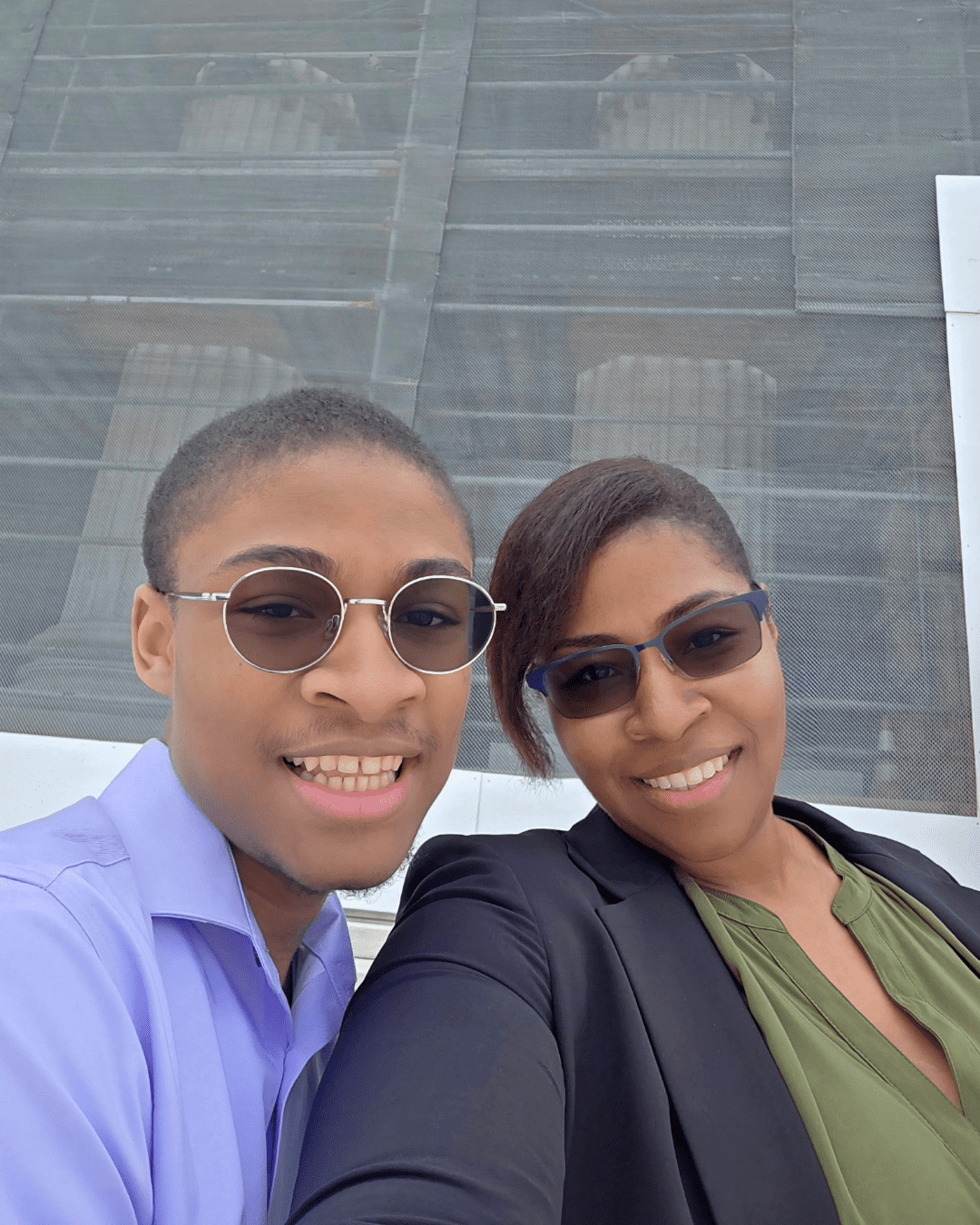
Corinthia A. Carter ’17 (right) with her son in front of the U.S. Supreme Court
Senior Staff Attorney, Workers’ Right and Benefits, Brooklyn, NY
As the daughter of an immigrant mother, Carter grew up seeing the challenges and hostility faced by those who are seeking better opportunities in this country. She credits her mother, whom she recently lost, as the driving force behind everything she does. This includes her approach to representing clients holistically when advocating for them. While she acknowledges that caseloads can be overwhelming, she makes a point to see each client as an individual and not just a number on a spreadsheet.
Carter’s other passion is mentorship. “Coming from a non-legal background, I know the profound impact a great mentor can have,” says Carter. By being admitted to the U.S. Supreme Court Bar, Carter will be better prepared to continue influencing laws that uplift vulnerable populations.
“We live in a country where immigrants, particularly Black and brown immigrants, face hostility for seeking better opportunities. My achievements stand on the shoulders of these immigrants and the many Black Americans who paved the way. It is also significant that my admission, along with that of my fellow CUNY alumni, occurred just a day before Juneteenth.”
– Corinthia A. Carter ’2017
Jhounelle Cunningham ’2012
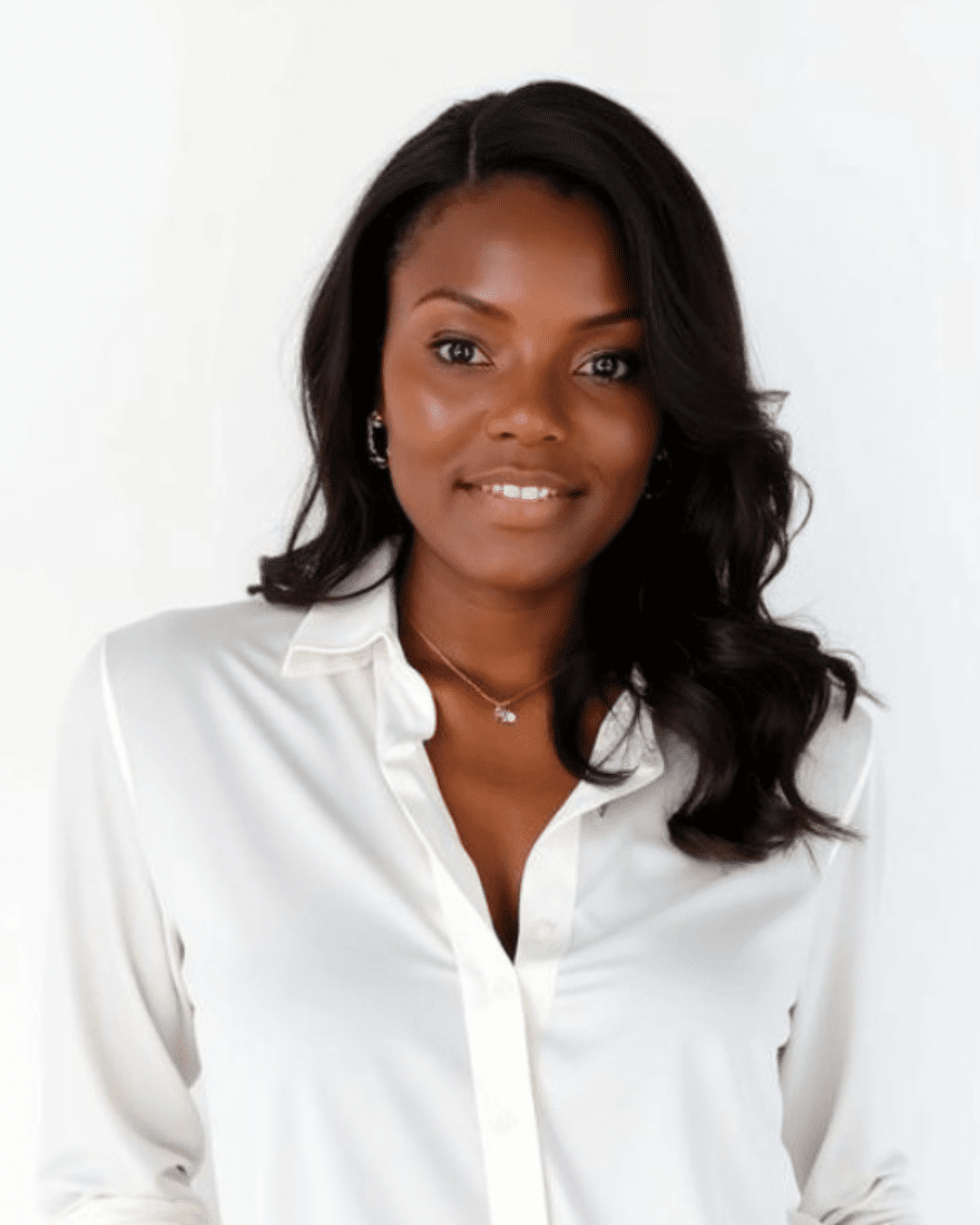
Jhounelle Cunningham ’2012
Senior Assistant District Attorney, Brooklyn, NY
Jhounelle Cunningham decided to seek admission to the U.S. Supreme Court Bar with the hope that she would one day be able to be part of a case that created a more just and equitable legal landscape for people of color. Cunningham notes that it’s not just a potential case itself that impacted her decision to seek admission.
“Getting admitted to the U.S. Supreme Court as a Black woman from Jamaica holds profound significance both personally and socially,” Cunningham says. Cunningham notes her lived experiences and unique perspectives enable her to approach cases with deeper consideration, often uncovering key details by viewing situations from angles others might miss. She shared examples of how her commitment to advocacy—visiting the scenes of alleged incidents to better understand the facts, spending time with families, and earning the trust of reluctant witnesses through empathy—has made her a more effective attorney. Her admission to the U.S. Supreme Court Bar increases its diversity, compassion, and excellence.
“My goal as a lawyer is to continue to be an example and foster a path for Black up-and-coming female lawyers. Additionally, my goal is to infuse this practice, that is often rigid, with compassion and consideration. Furthermore, I want to challenge stereotypes and prejudice and affirm the contributions immigrants and people of color make to the fabric of this nation.”
– Jhounelle Cunningham ’2012
Marc Ramirez ’16
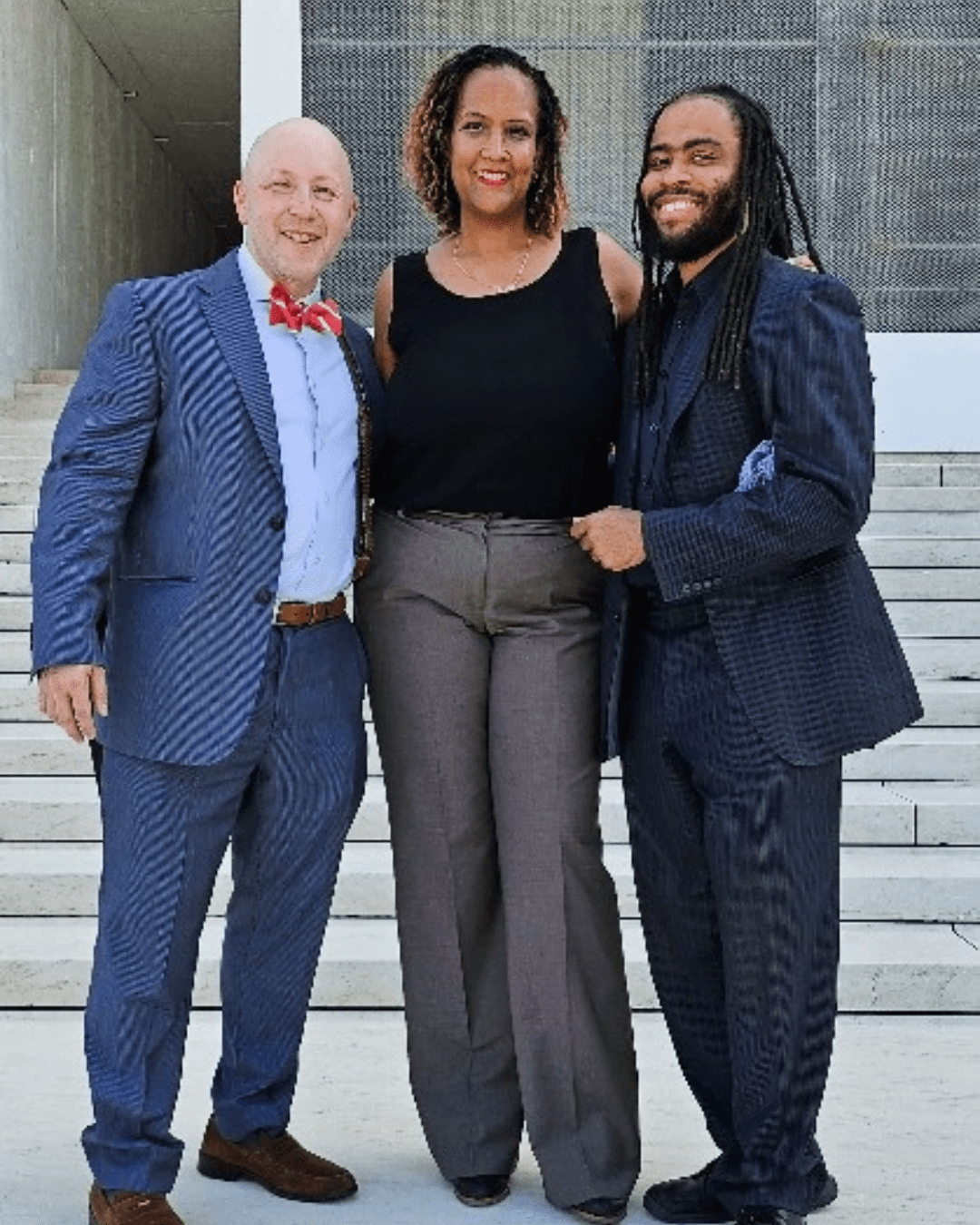
Marc Ramirez ’16 (left) and fellow CUNY alumni Izel Fortunato ’12 and Zamir Ben-Dan ’15, who were also admitted to the U.S. Supreme Court Bar
Court Attorney, New York City, NY
As a court attorney for a Criminal Court Judge in the Bronx, Marc Ramirez advises the judge on legal issues and helps draft legal opinions. He is passionate about fostering a more just legal system.
Marc’s firsthand experience with the legal system—receiving a 20-year sentence for a first-time, non-violent drug offense at 18—gives him a perspective few attorneys possess. From the law library of a federal prison to the U.S. Supreme Court Bar, his path reflects not just tenacity, but a deep understanding of how the law can shape and reshape lives. Now an accomplished attorney, he mentors aspiring law students and bar candidates, and supports others navigating the character and fitness process. His work is grounded in lived experience, legal expertise, and a commitment to transforming the system from the inside out.
“When I graduated law school, I invited my former boss from the last prison I was in; yes, a now dear friend who was a staff member at that prison. She gave me a watch, and engraved on the back it said, “Every saint has a past, every sinner has future.” I was wearing that watch when I was sworn into the bar for the U.S. Supreme Court, and I felt those words were never more true.”
– Marc Ramirez ’16
Clarissa M. Rodriguez ’07
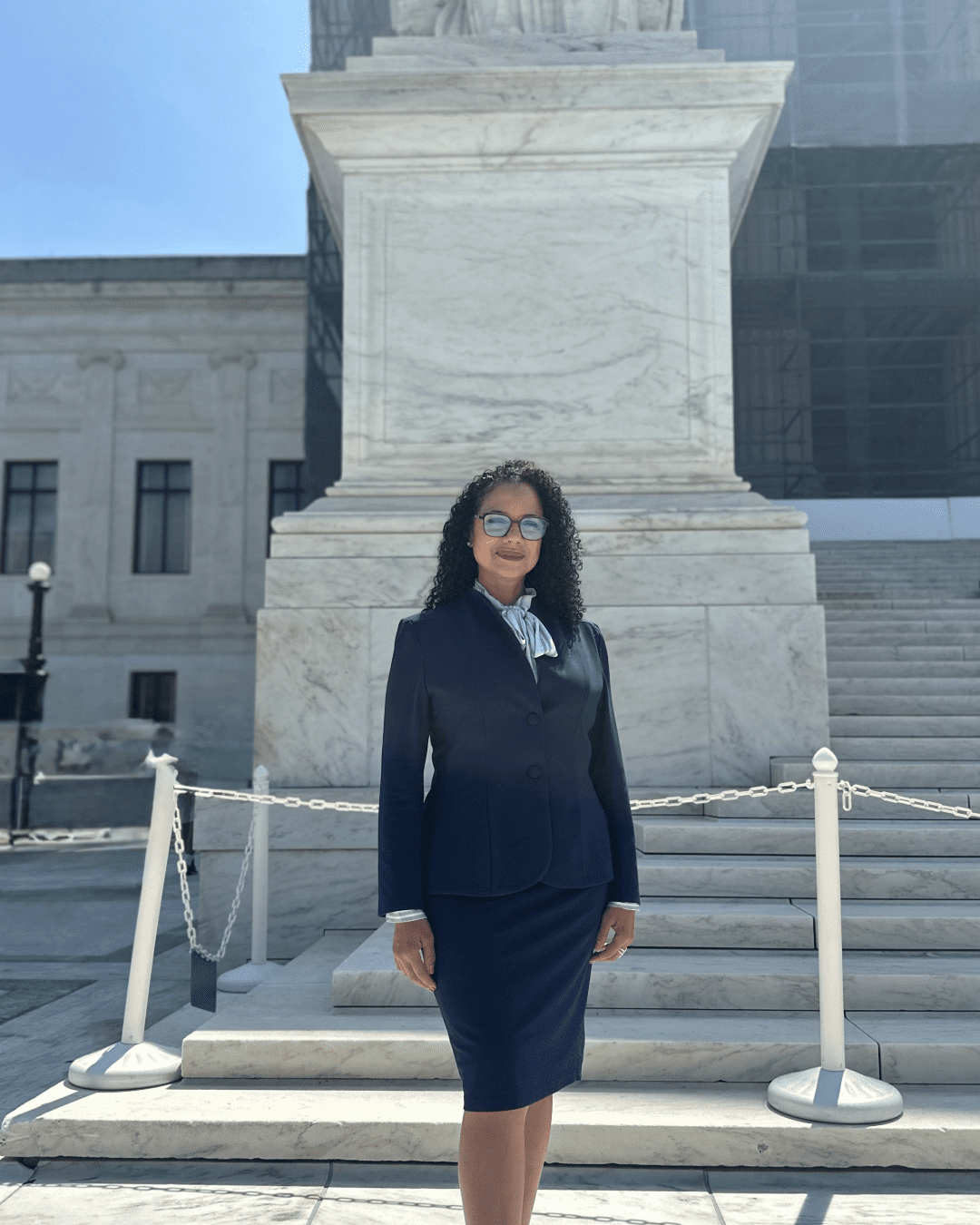
Clarissa M. Rodriguez ’07 in front of the U.S. Supreme Court
Assistant Chair & Commissioner, NYS Workers’ Compensation Board, Monroe, Orange County NY
It was a book, The Words We Live By, by Linda R. Monk, that first inspired Clarissa Rodriguez to apply for law school in 2004. The annotated guide to the U.S. Constitution revealed to her that the sacred freedoms of the law are only as powerful as our belief in the rule of the U.S. Supreme Court.
After law school, Rodriguez began her career as a community organizer and Legal Aid litigator. Her goal is to use the law as a tool for systemic change, and to have empathy and community at the center of every policy change. As the first Dominican American woman to serve as Chair of a New York State agency, she is also passionate about mentorship and hopes that every career success she achieves can help pave the way for others. For her, standing before the U.S. Supreme Court and being admitted to the U.S. Supreme Court Bar feels like coming full circle. She takes seriously the significance of now being able to practice before the highest court in the nation.
“This Admission to the Supreme Court Bar connects my personal journey to that enduring truth enshrined in the preamble of the Constitution, aka “We the People”: the right of ALL people to sovereignty and self-determination. While it was never meant for someone like me, due to the hard-fought wins of many courageous activists throughout history, it now represents me.”
– Clarissa M. Rodriguez ’07
Kara Sheli Wallis ’15
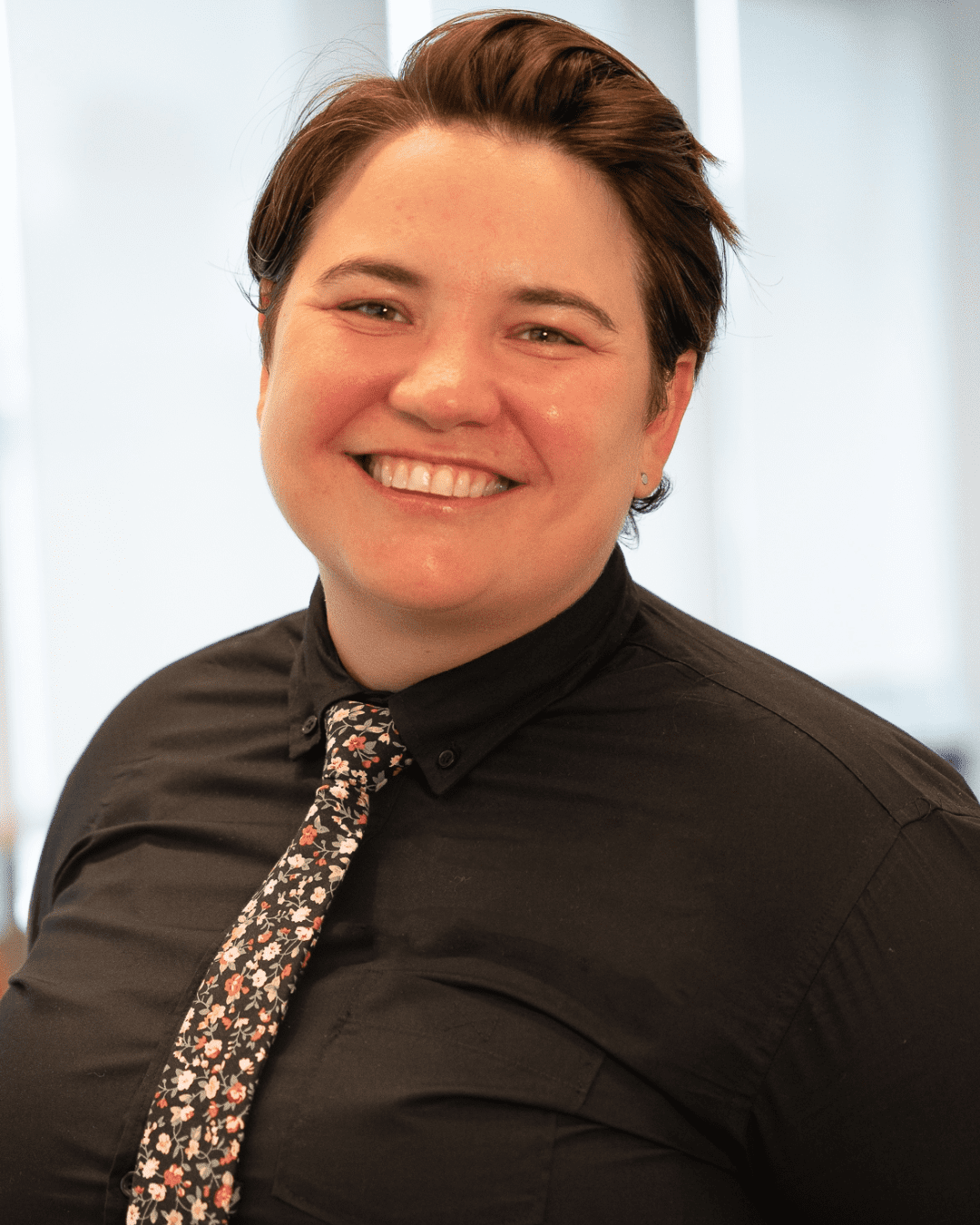
Associate Professor Kara Sheli Wallis ’15
Associate Professor at Law, CUNY Law, New York City, NY
For Professor Kara Sheli Wallis ’15, admission to the U.S. Supreme Court Bar was not only a milestone, but a way to claim space in a system that shapes so many lives. A former public defender and civil rights litigator, Wallis was one of the faculty members who were part of the group of alums who were admitted to the Supreme Court Bar. Wallis teaches courses in Civil Procedure and impact litigation, ethics and professional responsibility, legal writing, and client-centered lawyering skills, among others. Standing with her peers before all nine justices, she felt the true honor was being part of a community dedicated to using the law in service of human needs.
“As an attorney and a professor at CUNY Law, the Supreme Court holds power over all my work. As a queer Jewish woman, it also holds power over my rights, defines my identities, and tells me what I can and cannot do with my body. So while the law is an imperfect tool, I can now wield it in the highest court in the land, giving me a bit more power to stand up and invest my voice in our collective future.”
– Kara Sheli Wallis ’15, Associate Professor at Law, CUNY Law
To be eligible for admission to the U.S. Supreme Court Bar, applicants must have been members of a state bar for at least three years, remain in good standing, and secure sponsorship from two current members of the U.S. Supreme Court Bar. Admission dates are often reserved three to four years in advance.
CUNY Law alumni interested in future opportunities to be sponsored by the school for U.S. Supreme Court Bar admission are encouraged to stay connected with the Office of Alumni Relations. To receive updates and announcements about upcoming opportunities, please subscribe to the CUNY Law Alumni Newsletter. For any additional questions, contact us at alumnioffice@law.cuny.edu.
See our photo album from the U.S. Supreme Court Bar admission trip to Washington D.C. below.



